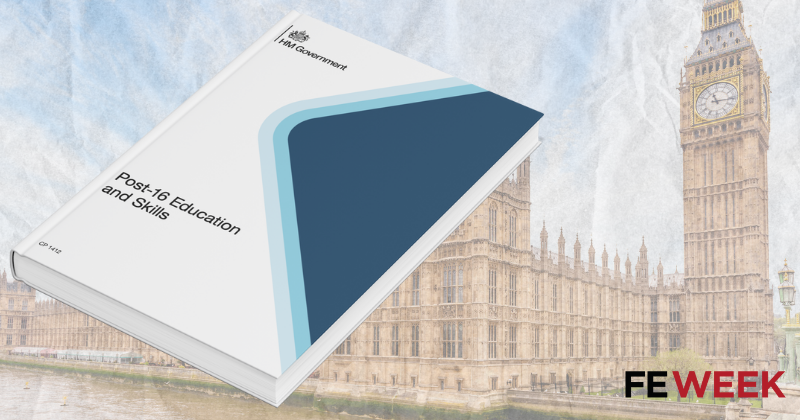In common with the industrial strategy published earlier in the year, much of last week’s white paper’s diagnosis of the post-16 education and skills system in England is accurate and recognisable to manufacturers.
Firm commitments on funding for further education, investment in equipment, and teacher recruitment and retention through initiatives such as an industry workforce exchange reflect challenges businesses face when sourcing local training and will help to address them.
The clear statement that public investment – including the growth and skills levy – should be tied to the eight growth-driving sectors of the industrial strategy should focus the government on significantly increasing apprenticeship training.
In re-opening the debate over technical and vocational qualifications at level 3, the government seems to share its predecessor’s view that a crowded field is too confusing for employers. Streamlining into three routes – A Levels, V Levels and T Levels – could help.
The proposals are similar to the Advanced British Standard, but split into three qualifications rather than one.
The ultimate goals – simplifying the landscape for employers, preserving student choice, and placing academic, technical and vocational routes on the same footing with solid English, maths and digital foundations – are the right ones.
Manufacturers welcomed the prime minister’s announcement of a new participation target, including technical study and apprenticeships, and the white paper adds detail to this commitment.
Nevertheless, in the short term, the system could become more confusing for employers. Having just adapted to T Levels and welcomed last year’s pause on defunding level 3 qualifications, another upheaval risks creating uncertainty.
The skills minister will need to communicate quickly and clearly the role of V Levels and use employer groups to raise awareness and understanding.
The government should also be clear about the future of T Levels. Industry has supported this qualification, and early results are positive.
Between 2024 and 2025, there was a 58 per cent increase in engineering and manufacturing T Level students, along with improved outcomes in training and employment. Ministers must not jeopardise T Levels just as they are bearing fruit, and should assess the new V Levels’ impact carefully.
While the white paper says little directly about apprenticeships, there are encouraging signs. It defines the growth and skills levy as part of public investment in skills, stating that investment should first benefit sectors like advanced manufacturing.
Make UK’s Industrial Strategy Skills Commission called for levy funds to be ringfenced for the skills system – following this commitment, those funds should prioritise key apprenticeship standards in priority sectors.
There is additional substance on short courses funded by the levy, described as ‘apprenticeship units’. Using existing apprenticeship standards ensures quality and relevance within the government’s short implementation window (from April 2026).
However, these short courses must be employer-led, lead to progression and not undermine full-time apprenticeships. Greater ambition could also be shown in supporting skills bootcamps and higher technical qualifications.
As the skills minister who legislated for the Lifelong Learning Entitlement (LLE) for qualifications between levels 4 and 6, it is good to see continued government commitment. This will improve upskilling and retraining options for adults and could transform higher education participation.
Taken as a whole, the direction of travel is good. The white paper will reassure manufacturers that the government is taking skills reform seriously.
Now, it must clearly set out plans for the role of V Levels, the details of the growth and skills levy, and how all changes will be driven by employer needs – especially in industrial strategy sectors like advanced manufacturing, which will deliver economic growth and build an apprenticeships and skills nation fit for the 21st century.
Robert Halfon is a former Conservative MP and minister for skills, apprenticeships and higher education
















Your thoughts